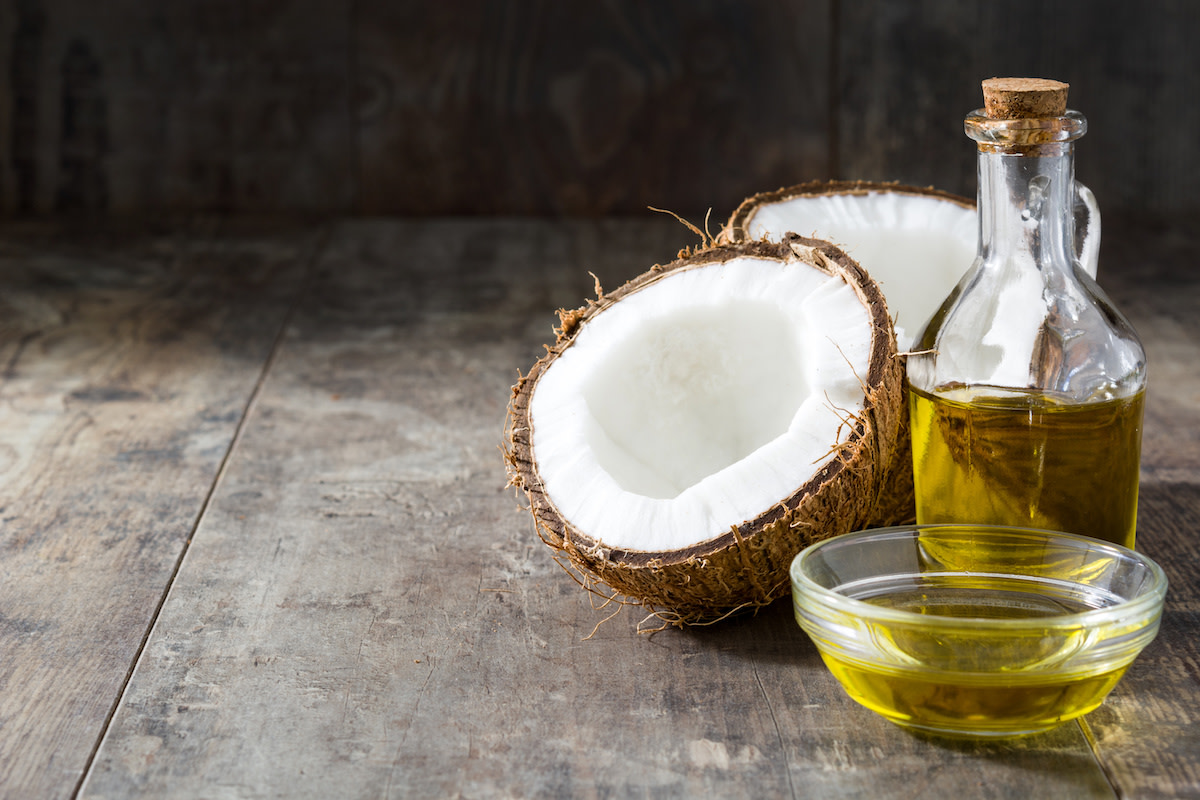How to Cook With Coconut Oil, Plus 10 Recipe Ideas Using Coconut Oil
Written by MasterClass
Last updated: Aug 4, 2021 • 3 min read
Touted as a superfood by some and a dangerous source of saturated fats by others, controversial coconut oil is useful in moderation for its nutty-sweet flavor and solid structure.
Learn From the Best
What Is Coconut Oil?
Coconut oil comes from the fruit of the tropical coconut palm tree (Cocos nucifera), which yields meat that is about 35 percent oil by weight. Oil made from coconuts is very high in saturated fat (about 86 percent), which makes it very stable, resisting oxidation and rancidity. With a melting point of 78°F, coconut oil is often solid at room temperature, a quality cooks take advantage of to make chocolate truffles and other no-bake desserts.
What Is the Difference Between Refined, Unrefined, and Virgin Coconut Oils?
Unrefined coconut oil is made from fresh coconut meat that can either be dried quickly and pressed to extract the oil (dry method), or from freshly pressed coconut milk and oil that are separated via centrifuge, enzymes, or fermentation. Unrefined coconut oil has a strong coconut flavor and smoke point of about 280°F. The terms virgin and extra-virgin are not regulated in the coconut-oil industry and can be used interchangeably to refer to unrefined coconut oil.
Coconut oil labeled “expeller-pressed” means heat was used in the oil-extraction process (in contrast to “cold-pressed,” which is not heated above 120°F), and usually refers to refined coconut oil. Refined coconut oil is made from dried coconut meat (called copra) that is pressed to release oil, then heated and filtered to remove impurities, bacteria, and scent. It’s also possible to refine coconut oil with chemicals, such as hexane. Refined coconut oil is flavorless and has a high smoke point of 365°F, while cold pressed coconut meat produces virgin oil that is very coconutty in flavor.
4 Tips for Cooking With Coconut Oil
- For some recipes you’ll want to warm coconut oil to its liquid state, in a microwave or a saucepan over low heat, to ensure precise measurements.
- If substituting coconut oil for solid fats, such as butter or shortening, use ¼ less coconut oil than the recipe calls for, since coconut oil contains more fat solids.
- Use unrefined coconut oil for medium-heat sautéing and baking, and the refined stuff for high-heat applications.
- Coconut oil can be grainy due to the fact that different types of fat have different melting points. To get rid of lumps in coconut oil, melt in a saucepan, microwave, or double broiler.
How to Store Coconut Oil
Store coconut oil in a cool, dark place, since light exposure can cause rancidity. You can also store coconut oil in the fridge, although you’ll have to warm it up to make it scoopable. Refined coconut oil will keep for a few months, and unrefined has a shelf life of up to three years. Throw away any coconut oil that looks yellow, smells funky, or contains mold.
10 Coconut Oil Recipes
Take advantage of coconut oil’s nutty-sweet flavor and solid structure in recipes like:
- Coconut oil chocolate truffles
- No-bake coconut cookies
- Gluten-free chocolate chip cookies
- Peanut butter and almond butter
- Fried eggs with rice
- Popcorn
- Granola
- Shrimp stir-fry
- Sweet potato coconut curry
- Kanom krok (Thai coconut pancakes)
What Are the Health Benefits of Coconut Oil?
Coconut oil contains medium-chain triglycerides (MCT), which are fatty acids that metabolize more quickly than other saturated fats, providing a quick energy boost that’s less likely to be stored as fat. Coconut oil’s dominant type of fatty acid, however, is lauric acid (47 percent) which is slower to metabolize than the MCT stuff popular among ketogenic dieters. Lauric acid has one big benefit however, which is that it’s antimicrobial.
Is Coconut Oil Bad for You?
Coconut oil is very high in saturated fat, which may raise blood cholesterol (including LDL cholesterol) and contribute to heart disease. Like most vegetable oils, coconut oil only contains trace amounts of vitamins and minerals, so, nutritionally, it’s a good source of fat and not much else. Like most cooking oils, it should be safe to use coconut oil in moderation as part of an overall healthy diet. In terms of healthy fats, olive oil is probably the safest bet.
How to Use Coconut Oil as a Beauty Product
Coconut oil is a powerful moisturizer. It’s comedogenic, so it should not be used on acne-prone skin, but it’s great for dry elbows and feet, or as a moisturizing hair mask. It’s also the oil of choice for those who practice oil-pulling, the ayurvedic dental hygiene technique. Its creamy texture makes coconut oil a great base for homemade deodorant and toothpaste.
